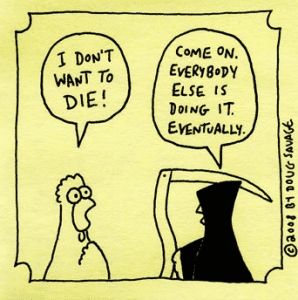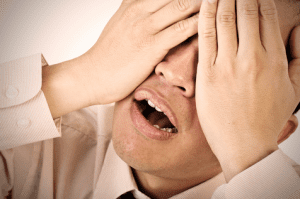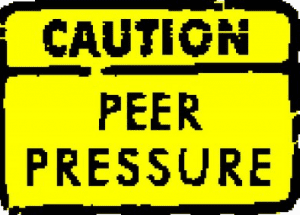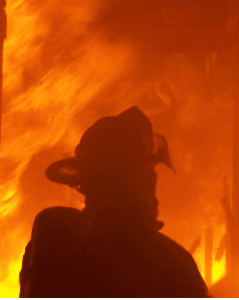 The social interaction between coworkers may not be on your mind as you think about situational awareness. But the fact is we are all influenced by our relationships with others. We have an inherent internal desire to be well-liked and respected. We also have a very strong internal drive to avoid embarrassment. These traits of human behavior can impact your situational awareness. Here’s how…
The social interaction between coworkers may not be on your mind as you think about situational awareness. But the fact is we are all influenced by our relationships with others. We have an inherent internal desire to be well-liked and respected. We also have a very strong internal drive to avoid embarrassment. These traits of human behavior can impact your situational awareness. Here’s how…
Team members and employees spend a lot of time together, both at work, and in many cases in social settings outside of work. All of this interaction builds relationships that allow people to trust each other. But can it go too far?
Blind Trust
 Trust is important but blind trust can be dangerous. Blind trust occurs when one persons places unwavering trust in another, never questioning the judgment or decision making of the trusted person. The formation of situational awareness is a result of capturing clues and cues in your environment. This is followed by processing those clues and cues into a coherent understanding of what is happening at the current moment. This, in turn, is followed by making accurate predictions of future events.
Trust is important but blind trust can be dangerous. Blind trust occurs when one persons places unwavering trust in another, never questioning the judgment or decision making of the trusted person. The formation of situational awareness is a result of capturing clues and cues in your environment. This is followed by processing those clues and cues into a coherent understanding of what is happening at the current moment. This, in turn, is followed by making accurate predictions of future events.
It is essential that everyone operating at an emergency scene develop and maintain individual situational awareness based on the process outlined above. If one has blind trust in a co-worker or a supervisor, then the team member or responder may not develop or maintain personal situational awareness because it may be believed the co-worker or supervisor is better trained or more experienced and therefore will look out for the team member or employee’s well-being.
In other words, the employee blindly trusts (and thus follows) the co-worker or supervisor’s lead. The employee’s situational awareness will be poor because the process of forming and maintaining personal situational awareness is relegated to someone else.
Peer Pressure
 A well-respected co-worker or supervisor may also influence the situational awareness and decision making of peers and subordinates. When a well-respected co-worker or supervisor makes a decision and gives an order, others may fall in-line and comply even if they see things that indicate the decision may be faulty or excessively risky.
A well-respected co-worker or supervisor may also influence the situational awareness and decision making of peers and subordinates. When a well-respected co-worker or supervisor makes a decision and gives an order, others may fall in-line and comply even if they see things that indicate the decision may be faulty or excessively risky.
I remember falling victim of peer pressure when I was a newer firefighter. I lacked the training of many of my peers and I certainly lacked the confidence to speak up. Reflecting back on my career, I can recall numerous occasions where I did whatever I was told because I wanted to be liked and I wanted to fit in. I surely didn’t want to be the wimp who stepped up and voiced concerns about my personal safety.
Reflecting back, I now see several human behavioral traits were in play for me. First, I had blind trust in my officer. I truly felt he was well-trained and he would look out for my well-being. Second, I was influenced by peer pressure. I didn’t want to risk embarrassing myself by speaking up. I might be wrong and my officer isn’t going to like me questioning his authority. My peers aren’t going to like it if I suggest we take a more conservative approach on the incident. There was simply too much at risk, so I went along with the others.
 Reflecting back, it’s ironic. I felt the risk of straining a relationship was more important than the risk to my own life. In other words, I was willing to die to avoid ridicule or embarrassment. In that mindset, I had a poorly developed personal situational awareness. My attention wasn’t focused on the emergency. My attention was focused on following the lead of my peers and doing whatever they did in a high-risk game of ‘follow the leader.’ My situational awareness was based on the behavior of my peers and the observations of my officer.
Reflecting back, it’s ironic. I felt the risk of straining a relationship was more important than the risk to my own life. In other words, I was willing to die to avoid ridicule or embarrassment. In that mindset, I had a poorly developed personal situational awareness. My attention wasn’t focused on the emergency. My attention was focused on following the lead of my peers and doing whatever they did in a high-risk game of ‘follow the leader.’ My situational awareness was based on the behavior of my peers and the observations of my officer.
 If my officer said “GO!” I went. And, reflecting back, he seemed to always said “GO!” In straining my memory I can recall only one time we did not go inside a burning structure and that was because the structure had collapsed prior to our arrival.
If my officer said “GO!” I went. And, reflecting back, he seemed to always said “GO!” In straining my memory I can recall only one time we did not go inside a burning structure and that was because the structure had collapsed prior to our arrival.
Survival as matter of luck
I wonder how often people find themselves entering situations they feel they should not be in based on peer pressure. In my book, On Fire About Leadership, I wrote a chapter about how peer pressure can increase risk taking. I based it on my own personal experiences as a 30-year first responder. I truly believe there are many people in any situation who will take excessive risk to avoid ridicule and embarrassment.
Why do I believe this? Because I did it. And I have had many others tell me they have found themselves in peer-pressured situations and survived only by luck. They went in to avoid the risk of ridicule and embarrassment. They blindly followed others into untenable situations.
Dr. Gasaway’s Advice
 I would recommend having a discussion among peers in advance of being put into the situation. Discuss how to stand up to the peer group and how to avoid embarrassment. It seems incomprehensible that someone would risk dying over risking embarrassment. But it happens. If no one speaks up, even though their gut tells them things are not good and the outcome ends up being good, nothing is ever said about it. If no one speaks up and the outcome is bad, the survivors may live a life full of regret for not having spoken up. The consequences are too great to remain silent.
I would recommend having a discussion among peers in advance of being put into the situation. Discuss how to stand up to the peer group and how to avoid embarrassment. It seems incomprehensible that someone would risk dying over risking embarrassment. But it happens. If no one speaks up, even though their gut tells them things are not good and the outcome ends up being good, nothing is ever said about it. If no one speaks up and the outcome is bad, the survivors may live a life full of regret for not having spoken up. The consequences are too great to remain silent.
Having a discussion in advance sets the stage so when someone speaks up at the emergency scene everyone understands it is in the interest of everyone’s safety. You may wish to refer to a previous article I wrote about the Five Step Assertive Statement Process (linked here). Discussing this process, advance, gives a responder a way to express concern without fear of consequence.
Avoid blind trust by ensuring your personal situational awareness is strong based on the clues and cues you capture at the incident, not based on the actions or behaviors or situational awareness of others. If you see peers behaving in ways that are inconsistent with want you feel is safe, have the courage to speak up.
Courage is doing the right thing for the right reason at the right time. Courage is not blindly following peers into situations of inappropriate or excessive risk.
Discussion questions
 1. Discuss a time when you allowed peer pressure to influence your better judgment in an emergency situation.
1. Discuss a time when you allowed peer pressure to influence your better judgment in an emergency situation.
2. Describe a time when you may have influenced an inexperienced responder into do something that was beyond his or her ability level and, looking back with hindsight, you realize they were performing beyond their capacity.
3. Discuss some best practices for how responders could avoid being unduly influenced by peer pressure at emergency scenes.
_____________________________________________________

If you are interested in taking your understanding of situational awareness and high-risk decision making to a higher level, check out the Situational Awareness Matters Online Academy.
CLICK HERE for details, enrollment options and pricing.
__________________________________
Share your comments on this article in the “Leave a Reply” box below. If you want to send me incident pictures, videos or have an idea you’d like me to research and write about, contact me. I really enjoy getting feedback and supportive messages from fellow first responders. It gives me the energy to work harder for you.
Thanks,

Email: Support@RichGasaway.com
Phone: 612-548-4424
SAMatters Online Academy
Facebook Fan Page: www.facebook.com/SAMatters
Twitter: @SAMatters
LinkedIn: Rich Gasaway
Instagram: sa_matters
YouTube: SAMattersTV
iTunes: SAMatters Radio
iHeart Radio: SAMatters Radio

Richard, I took your leadership class at the Upper Ohio Valley Fire School two years ago. Thank you for henlipg me make better decisions on the fireground before making a plan and giving me knowledge to share with fellow firefighters.
William,
Thank you for attending my class and supporting my mission. I sincerely appreciate both.
Rich